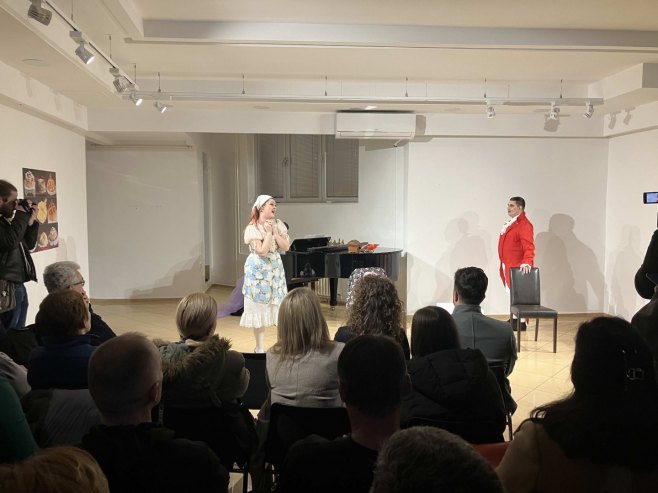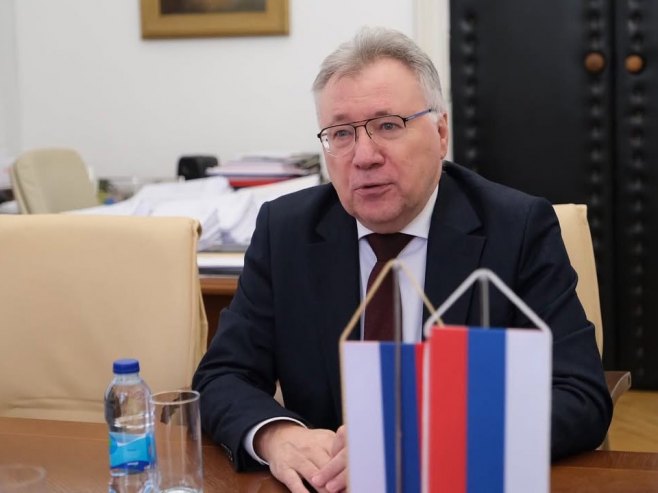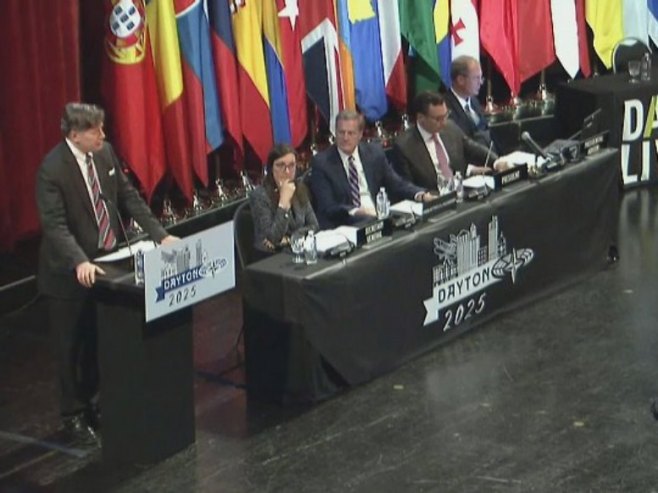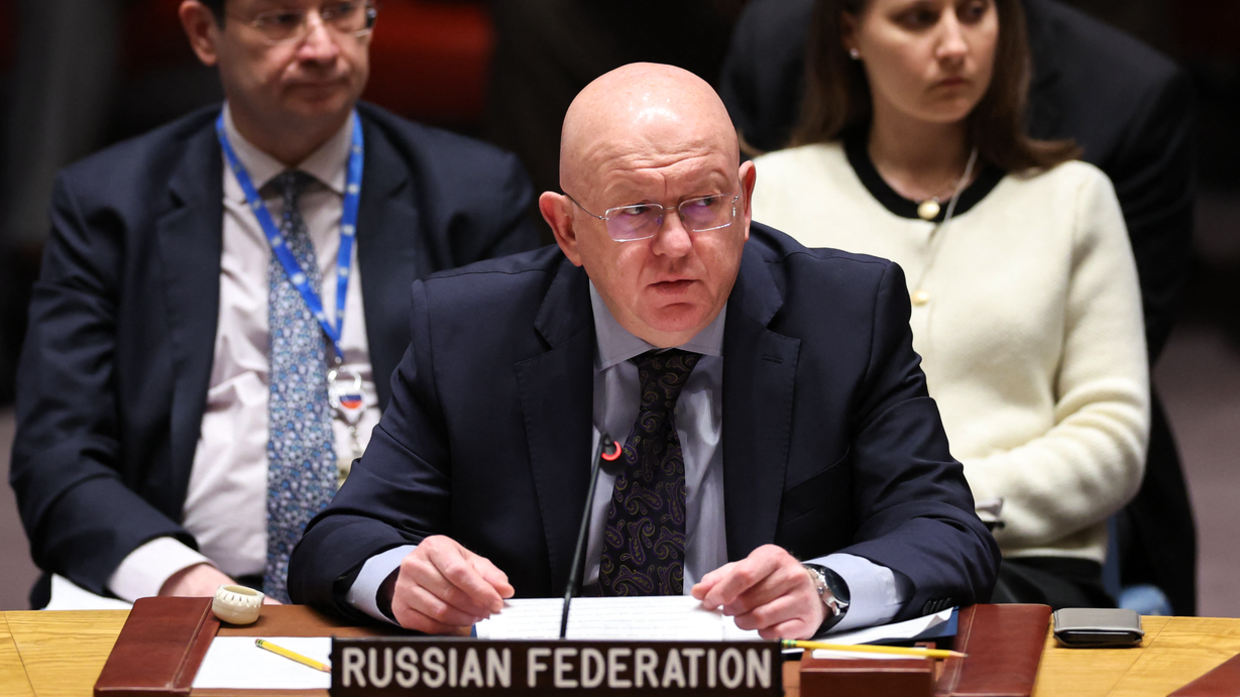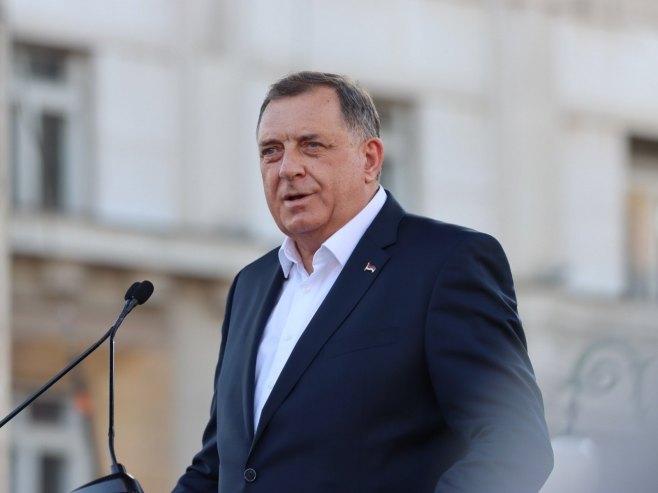Does political Sarajevo understand that the time of decrees and foreign interventionism is passing? Has it understood the messages of the new American administration in Dayton? Judging by the statements of Bosniak political representatives and most Sarajevo-based media, it would seem not. They ignore the words of U.S. Deputy Secretary of State Christopher Landau that dialogue and consensus are the solution to the problems in Bosnia and Herzegovina, while instead invoking statements from former American “tutors.”
President of Republika Srpska Milorad Dodik continues to call on the elected representatives of the three peoples and two entities to respect the letter of the Dayton Agreement and to engage in internal dialogue as the only path out of the political crisis.
Bosnia and Herzegovina cannot be governed through foreign decrees and imposed decisions and laws. It can only survive through internal agreement. President Milorad Dodik, for the umpteenth time, reminds those who forget—whether deliberately or not—what the Dayton Agreement really is. Republika Srpska does not seek to dismantle Bosnia and Herzegovina but respects the letter of the peace agreement.
“One open question remains: what about everything that has already been imposed? What about that? That cannot be accepted or recognized. It all has to be reviewed and put on the table for discussion. The Constitution says three ministers, not three ministries. And they are an auxiliary body to the Presidency, so we’ll see why and how that was changed,” said President Milorad Dodik.
In any case, he said, it is good that a rational approach toward BiH has emerged in the U.S. But political Sarajevo either refuses or fails to understand this, as demonstrated in Dayton, according to Željka Cvijanović, the Serb member and chair of the Presidency of BiH. She said that the Bosniak member Denis Bećirović used every meeting to accuse Republika Srpska and thereby “contaminated” both the city of Dayton and the Dayton Agreement itself.
“But that no longer produces the effect they’ve come to expect, because U.S. officials now speak about the need to preserve peace. They say they are willing to listen but no longer want to impose solutions. Their foreign policy is now primarily focused on economic cooperation,” Cvijanović noted.
A similar trend is seen in Sarajevo-based media, which downplay the messages from the new U.S. administration and instead spotlight the so-called non-paper and even cite statements from former U.S. ambassadors, such as claims that the dissolution of BiH cannot happen peacefully.
“These are relics of the past. When they see a former official, they stand still. They know nothing. That’s where you should look for the reason why Bosniaks don’t want to negotiate or even talk. They’re incapable of doing anything without a mentor,” said Milorad Dodik.
“They are, after all, a minority and clearly didn’t hear the words of U.S. Vice President J.D. Vance when he said that there’s a new sheriff in town—that is, in Washington. We in Republika Srpska understood that message very well and we seek good cooperation with the U.S., one that will benefit everyone in BiH, without favoritism or punishment,” emphasized Cvijanović.
A different approach from both the U.S. and the EU toward BiH is also expected by Dragan Čović, deputy chair of the House of Peoples. He hopes BiH is no longer under their oversight as it once was and that they have grown tired of the country.
“For a while, they had a strong interest here. They sent powerful people who basically represented the ruling authority. If they said to adopt a law, we adopted it. We can’t function that way,” said Čović.
The messages from the United States delivered by Deputy Secretary of State Landau on behalf of the American president and his administration are encouraging for both Serbia and Republika Srpska, believes Serbian Foreign Minister Marko Đurić. While in Dayton, he participated in numerous meetings with both Democrats and Republicans and heard many positive tones about how to overcome the political crisis in BiH.
“With strong support for the Dayton Agreement, we demand that parties treat each other with respect and resolve open issues exclusively through internal dialogue—not through any kind of imposition,” said Marko Đurić.
Apparently, some in the European Union have yet to grasp this. They continue to push non-binding papers in an attempt to pressure Republika Srpska and Serbia. But the American support and insistence on dialogue in BiH seems to have disrupted their plans.
“The Franco-German duo, which once dominated the EU, no longer has the same influence. The non-paper is simply a pressure tool because it creates an atmosphere in which it’s constantly repeated that Republika Srpska is the one violating peace and stability in Bosnia. That’s not true. Republika Srpska mostly acts defensively,” said Predrag Marković, director of the Institute for Contemporary History.
“The messages from America are exactly what BiH has needed for the past two decades. And that is internal consensus and the dismantling of various disputes in which the international community has caused more problems than it has mediated or helped solve,” said Zoran Krešić, journalist for Večernje novosti.
There is no need to worry that European institutions are doubling down on their failed policies and stubbornly trying to implement them, says President Dodik. Republika Srpska has survived, is politically and economically stable, ready for dialogue, and has no intention of surrendering. Official Washington has put an end to the illusions of political Sarajevo and the foreign interventionists.
Source: RTRS
